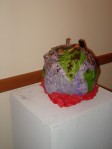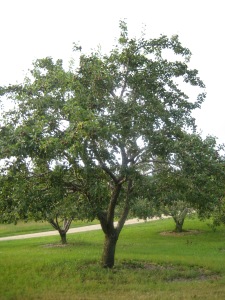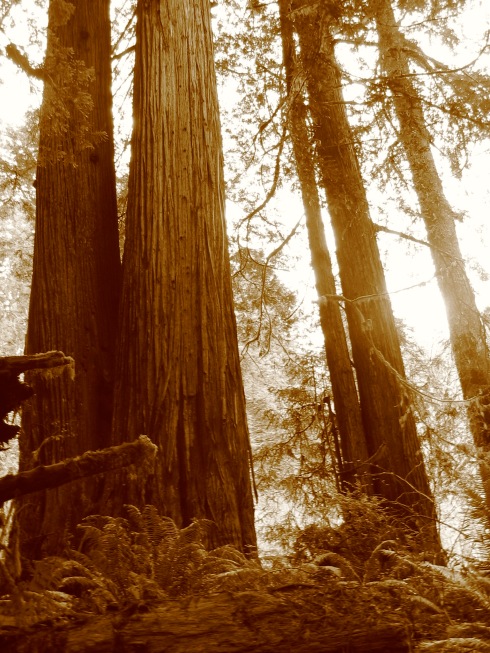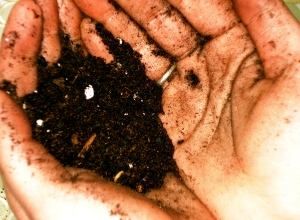Readings
Exodus 12:1-4, (5-10), 11-14 • Psalm 116:1-2, 12-19 • 1 Corinthians 11:23-26 • John 13:1-17, 31b-35
Reflection: Whose Feet Do You Wash?
“And above all, we give thanks that on the night before Jesus was handed over to suffering and death, he gathered his disciples and took bread…”
So begin the words of institution that mark the sacred table around which many Christian communities gather weekly, monthly, or even occasionally. This cadence is etched into our hearts as an integral part of our life together as a community: it is the ultimate symbol of the love and the moving spirit that keeps us together. And of all days to hear again this story in our scriptures, one would expect it to be today; after all, tonight is the night before Jesus is handed over to suffering and death. But we do not hear these words in the gospel. Instead, we glimpse Jesus washing his disciples feet, and telling them that they “should love one another,” just as Jesus has loved them.
Today’s gospel passage begins Jesus’ “farewell discourse,” where he prepares his disciples for his impending death. This is a preparation for how to go on living after he has died, and how life will continue on without him.
He begins this discourse by washing his disciples’ feet and commanding them to love each other as he has loved them.
Take a moment to let the profundity of that simple action sink in: Jesus washes his disciples feet. Picture for a minute your own feet: we hardly ever look at them, or acknowledge them except for their sometimes usefulness; when we do acknowledge them at all, it is often with a hint of disdain. Feet are dirty and smelly, because for many of us, they mark the physical space where our bodies meet the hardness of reality—rough roads and dropping arches, not to mention bunions or calluses won from long days on our feet, or the occasional hangnail that reminds us that the littlest things can pierce us deeply when they affect every move our bodies make. The disciples’ feet would have very much the same, and though the circumstances of their lives might have been different, the reality of their feet would be accessible to us: roughness, perceived ugliness, downright brutal interaction with the world.
“Jesus, knowing that the Father had given all things into his hands, and that he had come from God and was going to God, got up from the table, took off his outer robe, and tied a towel around himself.” (John 13:3-4)
And Jesus, when preparing his disciples for life after him, wraps a towel around his waist, kneels before his students, pours warm water, and washes their feet. How intimate! How tender! And how real it is! This, this!—is a love that moves mountains, a love who did not consider divinity something to be exploited but emptied itself and was born in human likeness (Philippians 2:6-8). This love is a love so great that even death could not hold it. This is a love that heals the most painful edges of our lives and makes the entire world whole.
Too often, we equate love with a weak sentimentality—we let ourselves think of love as either godly or profane, or in its greatest human form, a kind of deep attraction. We forget the power that resides in the words, “I love you.” Moreover, we forget what it means that Jesus commands us to love as he has loved us.
When we forget that love is messy, we settle for a love whereby we claim to love our neighbors but allow them to starve or, worse, turn a blind eye to the reason why they starve. We squabble over national or local economic policies while the working poor buy their groceries at the corner convenience store… and we call our dollar donation at the supermarket checkout “charity.” We convince ourselves that this is “loving one another as Jesus loved us.” Because it’s too difficult to acknowledge that when we buy our groceries, we do so as a part of a larger economic whole: a whole where we benefit at the expense of others, even when those others are half a world away. Because it’s difficult, even angering, to imagine that our very ways of being—how we consume, how we discard—can and does contribute to the destitution of two thirds of the world, we choose not to acknowledge that to love the world is to make a decision radically at odds with the way we live now.
Love is difficult business, because it makes us question who we are.
To love one another as Jesus has loved us, as we prepare ourselves for Jesus’ suffering and death tomorrow, means that we must wash one another’s feet. It’s difficult to imagine what this looks like, when all we have to offer us hope are political stump speeches, and when world economies are so complex that we can barely keep up with the news programs that attempt to explain them. To see with our own eyes what love means, I cannot begin to tell you.
But I can tell you what it might feel like…
It feels like someone else’s rough foot, held tenderly in your hands: someone’s unaffordable electricity bill, or a North Nashville community’s creeping landfill site, or women whose only perceived means of self-sufficiency is prostitution.
It feels like warm water, flowing over the cold edges of someone else’s toes: a stranger’s tears spilling onto your shirt when their house is repossessed, or building houses after the floodwaters subside.
It feels like the soft healing oils gaining heat between your hands and another’s vulnerable, tender feet: the swelling pride of voting for bills that provide a better access to education for all children, or volunteering at a summer reading program.
And it feels like admitting that some problems are too big to be tackled in one day, but that a steady faithful community can make small steps toward hope. It may be simple, and it may be a far cry from healing the broken economy and the systems of economic depravity that keep some people poor and other people prosperous, but it’s a start.
So why don’t we hear the story of the Eucharist in today’s gospel? Well, I think we do hear it—instead of a Eucharist of bread and wine, we see a Eucharist of water and oil. It is a reminder that we do not only gather around this table, but that we gather around each other, pour warm water, and wash each other’s feet.
And we believe that it is possible because Jesus commanded us to love one another as he has loved us. We believe it is possible because Jesus shows us that it is in serving that our lives are transformed. We believe that it is possible because Jesus, on the night before he was handed over to suffering and death, showed us what it means to love one another as he has loved us.
 O God, your blessed Child was laid in a tomb in a garden, and rested on the Sabbath day: Grant that we who are buried with your Child in the dark emptiness of the dominion of sin and death may be delivered into the light of the resurrection and become the co-creators of your eternal and joyous realm of compassion, where Christ lives and reigns for ever and ever. Amen.
O God, your blessed Child was laid in a tomb in a garden, and rested on the Sabbath day: Grant that we who are buried with your Child in the dark emptiness of the dominion of sin and death may be delivered into the light of the resurrection and become the co-creators of your eternal and joyous realm of compassion, where Christ lives and reigns for ever and ever. Amen.






